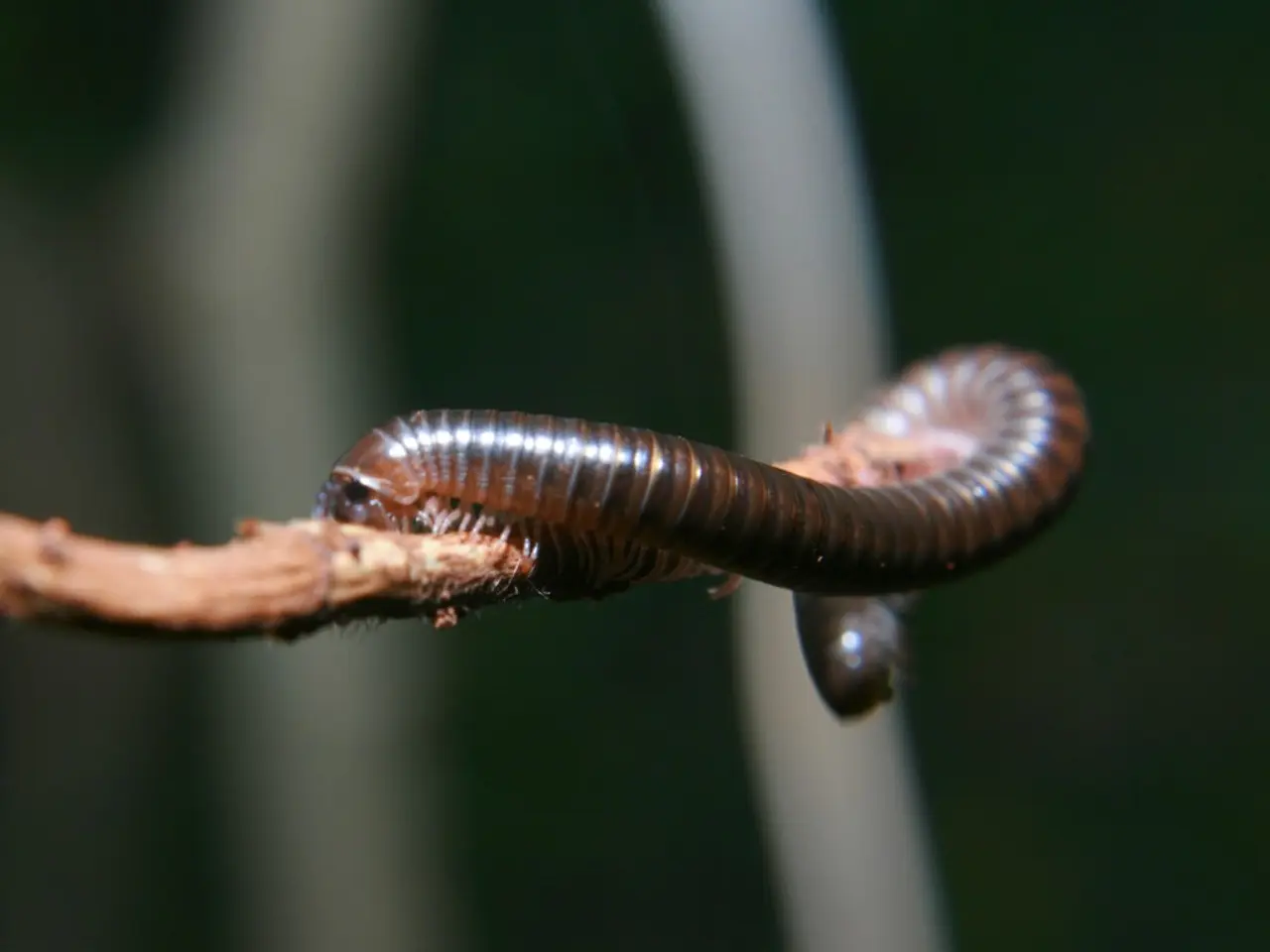Monitor and overcome persistent parasite issues during the summer season
In the ever-evolving world of livestock farming, two parasites, Nematodirus and Haemonchus, pose significant challenges. These gastrointestinal nematodes can cause parasitic infections that negatively impact the health and productivity of livestock. While specific adaptations of these parasites in farming contexts may not be extensively documented, their general behaviour shows a propensity to modify host behaviour to facilitate transmission and survival[2].
Parasites like Nematodirus and Haemonchus may adapt through altered timing of egg laying or larval development to synchronise with grazing patterns of hosts, increasing infection chances. They may also develop mechanisms to evade the host's immune system or survive environmental conditions on pastures, which can be considered behavioural or life-history adaptations to farming systems.
To counteract these parasitic adaptations, experts advocate sustainable practices aimed at reducing parasite load and minimising drug resistance. These include targeted selective treatment (TST), pasture management, breeding for parasite resistance, biological control, improved nutrition, and overall livestock health[2].
Targeted selective treatment (TST) involves treating only animals showing signs of heavy infestation rather than entire herds, slowing resistance development. Pasture management strategies like rotational grazing and rest periods allow parasite larvae on pasture to die off, disrupting their life cycles. Breeding for parasite resistance involves selecting livestock breeds or individuals with natural resistance to nematode infections. Biological control uses predators or antagonists of parasite larvae on pastures, while improved nutrition and overall livestock health enhance animal resilience against parasitic infections.
These sustainable practices reduce reliance on routine anthelmintic drugs, which parasites like Haemonchus are developing resistance against, and help maintain productive and healthy livestock systems.
Untreated parasite challenges can lead to performance loss and multiple treatments later to rectify a problem. Therefore, regular faecal egg counts should be conducted to monitor the situation with parasites. Seeking appropriate advice from experts is crucial in parasite control for sustainable farming.
As the challenge of parasite management intensifies due to changing weather patterns, staying informed about effective parasite management can help maintain livestock health and productivity. For instance, Nematodirus, a parasite, is now common in autumn as well as spring, causing high worm burdens in youngstock over winter. Similarly, Haemonchus, or Barbers Pole worm, is increasingly seen across the UK, with outbreaks occurring earlier in the year.
To support farmers in managing parasites, the newsletter offers a special offer for Pasture for Life members. Eurion Thomas, the General Manager at Techion (FECPAK), emphasises the significance of these practices in maintaining a sustainable farming future.
This article was published on June 26, 2025.
- In the field of health-and-wellness for livestock, the integration of scientific knowledge from fields like environmental science and medical-conditions is crucial when addressing parasitic infections like those caused by Nematodirus and Haemonchus, which are common in both spring and autumn.
- Sustainable farming practices, such as selective treatment, breeding for resistance, pasture management, biological control, improved nutrition, and regular monitoring, are vital in managing parasites and their adaptations in farming systems, contributing to healthier livestock and promoting a sustainable future for farms.




